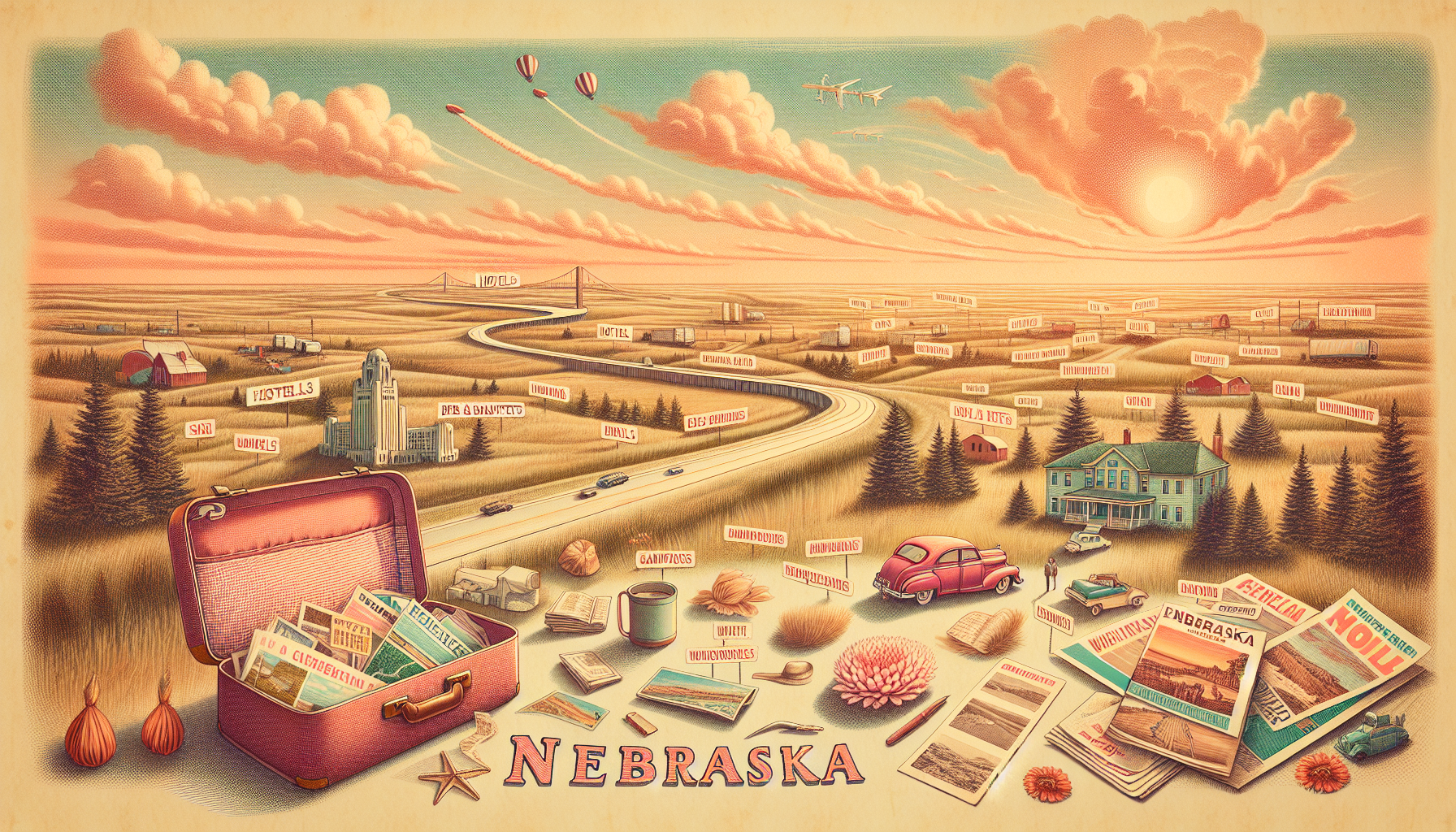Traveling Through Nebraska: Exploring the Center for Great Plains Studies

Located in Lincoln, Nebraska, at the University of Nebraska, the Center for Great Plains Studies is a multidisciplinary research and academic institution dedicated to promoting the understanding and appreciation of the unique cultures, histories, and environments of the Great Plains region. Established in 1966, the center seeks to support and stimulate research and scholarship on the Great Plains by bringing together scholars from various disciplines to examine the complexities of the region.
One of the key initiatives of the center is its annual symposium, which brings together scholars and experts from a range of disciplines to explore specific topics related to the Great Plains. For example, the 2019 symposium, "Rivers, Lakes, and Prairies: An Environmental History of the Great Plains", featured presentations from historians, geographers, and ecologists on the environmental transformations of the Great Plains. The symposium also included a keynote address by the renowned environmental historian, Dan Flores, who spoke on the role of fire in shaping the ecosystems of the Great Plains.
The Center for Great Plains Studies also supports research through its many publications, including the Great Plains Quarterly and the Journal of Great Plains Research. These journals provide a platform for scholars to share their research on various aspects of the Great Plains, including its history, literature, culture, and environment. Additionally, the center publishes a series of books on Great Plains topics, including the award-winning "Plains Indians, A.D. 500-1500: The Evolution of Plains Indian Societies" edited by Karl H. Schlesier.
In addition to its research and publication initiatives, the center also supports education and outreach programs that promote the understanding and appreciation of the Great Plains. For example, the center's Great Plains Science and Education Center, located in Omaha, Nebraska, provides educational programs for students and teachers on topics such as prairie ecology and human-nature relationships. The center also collaborates with local museums, historical societies, and cultural organizations to develop exhibits and programs that highlight the rich cultural and environmental heritage of the Great Plains.
Throughout the year, the Center for Great Plains Studies hosts a variety of events and festivals that celebrate the culture and heritage of the Great Plains. For example, the annual Sheldon Film Festival, held in Lincoln, Nebraska, features documentaries and films that explore various aspects of the Great Plains, including its history, environment, and indigenous cultures. The festival often includes discussions with filmmakers and scholars on topics such as the representation of the Great Plains in film.
The center also supports the preservation of Great Plains cultural and natural resources through its various collaborations with state and federal agencies, as well as non-profit organizations. For example, the center has partnered with the U.S. National Park Service to develop educational programs and exhibits on the history and ecology of the Great Plains.
Furthermore, the center has also been involved in research and preservation efforts related to the indigenous cultures of the Great Plains. For example, the center's Native American Graves Protection and Repatriation Act (NAGPRA) program has worked with Native American tribes and cultural organizations to repatriate human remains and cultural items from the University of Nebraska's collections.
Overall, the Center for Great Plains Studies at the University of Nebraska plays a vital role in promoting the understanding and appreciation of the unique cultures, histories, and environments of the Great Plains region.
One of the key initiatives of the center is its annual symposium, which brings together scholars and experts from a range of disciplines to explore specific topics related to the Great Plains. For example, the 2019 symposium, "Rivers, Lakes, and Prairies: An Environmental History of the Great Plains", featured presentations from historians, geographers, and ecologists on the environmental transformations of the Great Plains. The symposium also included a keynote address by the renowned environmental historian, Dan Flores, who spoke on the role of fire in shaping the ecosystems of the Great Plains.
The Center for Great Plains Studies also supports research through its many publications, including the Great Plains Quarterly and the Journal of Great Plains Research. These journals provide a platform for scholars to share their research on various aspects of the Great Plains, including its history, literature, culture, and environment. Additionally, the center publishes a series of books on Great Plains topics, including the award-winning "Plains Indians, A.D. 500-1500: The Evolution of Plains Indian Societies" edited by Karl H. Schlesier.
In addition to its research and publication initiatives, the center also supports education and outreach programs that promote the understanding and appreciation of the Great Plains. For example, the center's Great Plains Science and Education Center, located in Omaha, Nebraska, provides educational programs for students and teachers on topics such as prairie ecology and human-nature relationships. The center also collaborates with local museums, historical societies, and cultural organizations to develop exhibits and programs that highlight the rich cultural and environmental heritage of the Great Plains.
Throughout the year, the Center for Great Plains Studies hosts a variety of events and festivals that celebrate the culture and heritage of the Great Plains. For example, the annual Sheldon Film Festival, held in Lincoln, Nebraska, features documentaries and films that explore various aspects of the Great Plains, including its history, environment, and indigenous cultures. The festival often includes discussions with filmmakers and scholars on topics such as the representation of the Great Plains in film.
The center also supports the preservation of Great Plains cultural and natural resources through its various collaborations with state and federal agencies, as well as non-profit organizations. For example, the center has partnered with the U.S. National Park Service to develop educational programs and exhibits on the history and ecology of the Great Plains.
Furthermore, the center has also been involved in research and preservation efforts related to the indigenous cultures of the Great Plains. For example, the center's Native American Graves Protection and Repatriation Act (NAGPRA) program has worked with Native American tribes and cultural organizations to repatriate human remains and cultural items from the University of Nebraska's collections.
Overall, the Center for Great Plains Studies at the University of Nebraska plays a vital role in promoting the understanding and appreciation of the unique cultures, histories, and environments of the Great Plains region.
